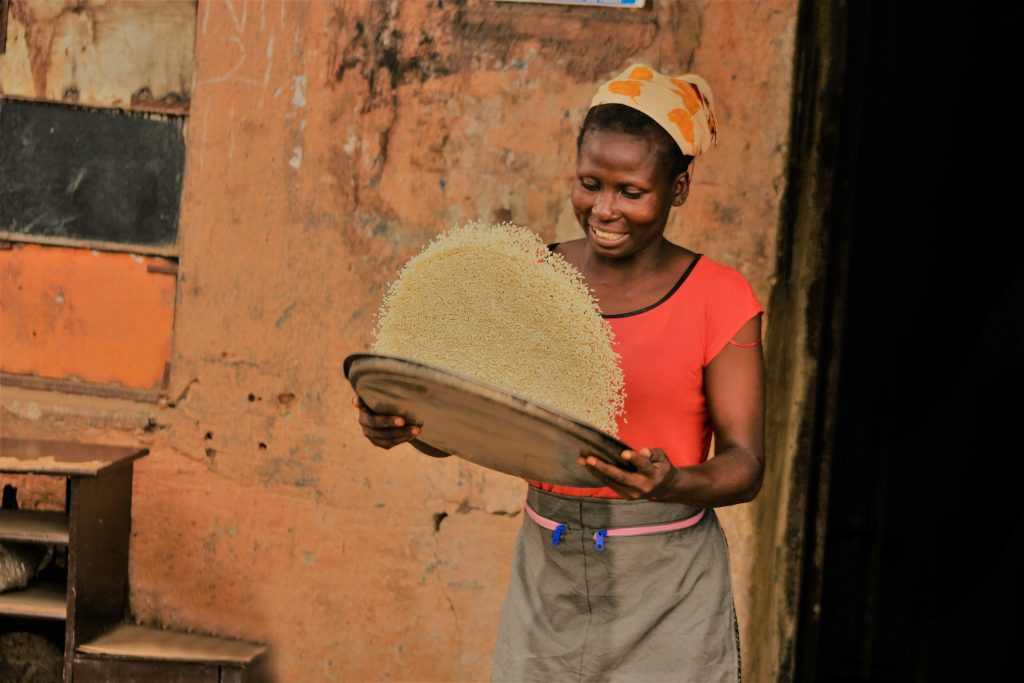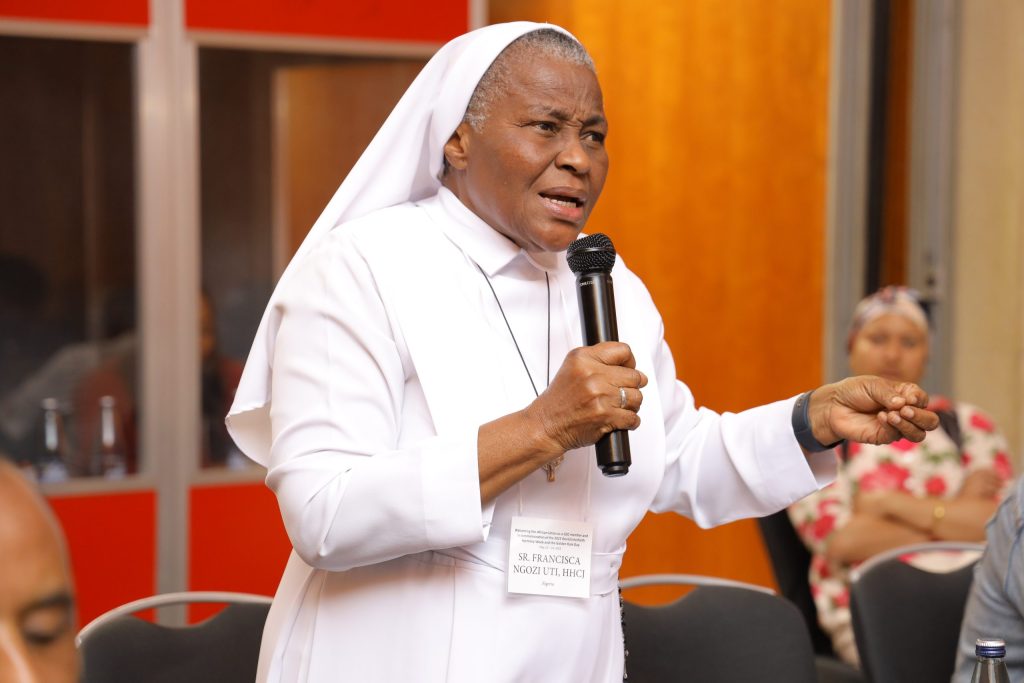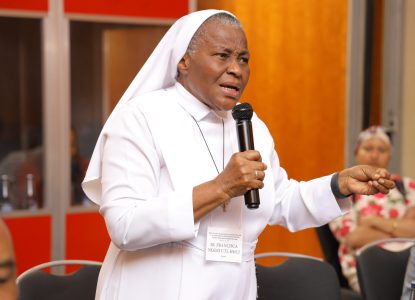On May 13-14, 2025, the G20 Interfaith Forum Association, in partnership with the United Religions Initiative (URI), the Inter-Religious Council of Ethiopia, and the African Union, hosted a two-day conference on “Africa’s Faith Communities: Advancing the Sustainable Development Goals, the African Union Agenda 2063, and G20 South Africa’s 2025 Process.” A central focus throughout the gathering was women’s empowerment, protection, and leadership—recognizing that sustainable development across Africa cannot be achieved without addressing the systemic barriers that limit women’s full participation in society. The discussions examined the multifaceted challenges facing women, from displacement and violence to economic inequality and trafficking, while highlighting the transformative potential of women’s leadership in faith communities, governance, and development initiatives. This emphasis reflects the understanding that empowering women is not only a moral imperative but a strategic necessity for building peaceful, prosperous, and just societies across the continent.
The following summary was compiled based on notes taken by Marianna Richardson throughout the conference proceedings. This represents the second of four topic-based summaries capturing the key insights and discussions from this landmark interfaith gathering.

The session explored the multifaceted challenges facing women in Africa, especially those related to displacement, violence, economic inequality, and trafficking. The role of faith communities and women leaders was central to the discussion, with a call to translate conversations into lasting, systemic change.
Sister Francisca Ngozi Uti stepped in as a moderator and emphasized the need for cultural renewal, especially regarding women in leadership.
“Women are taking up ministerial and financial leadership roles, yet still face limitations in access to networks, resources, and education,” Uti said. She pointed to work-life balance, childcare, and confidence as ongoing barriers. Despite these challenges, she celebrated progress: 25% of ministers in some contexts are women, and 12 out of 25 banks are led by women. Uti advocated for faith-based partnerships and inclusive policymaking that place women at decision-making tables:
“We must not only place men at the table—women’s leadership is essential.”
Nicole Stirling (Stirling Foundation, USA)
Nicole Stirling emphasized the foundational role of women in the home, asserting that: “The real first political order is in the home.” Drawing from personal experience and referencing the work of Dr. Ballard Hudson, she linked national health and security to the empowerment of women at home. Stirling advocated for balancing respect for traditional roles with women’s broader opportunities in society.
“There doesn’t have to be a choice between motherhood and leadership.”
She called for recognition of caregiving, moral leadership in families, and property rights and protection from domestic violence as essential indicators of women’s empowerment.
Samson Tesfaye (Rotary Representative to AU and UNECA)
Samson Tesfaye highlighted Rotary International’s long-standing commitment to working with women and girls, especially in areas of peacebuilding, education, and sanitation. “Peacebuilding is not abstract—it’s a cornerstone,” he stated. He shared examples from Ethiopia, where women are deeply affected by water scarcity and hygiene issues. Rotary collaborates with religious organizations and schools to reduce burdens and empower women through education and leadership development. Tesfaye called for women to be included in global spaces like the G20, particularly in decision-making and resource allocation.
Mrs. Nwabufo Francoise Foute (Family Health & Development Foundation, Cameroon)
As a public health midwife and grassroots leader, Foute focused on holistic care for women and children, especially those in refugee and displaced contexts. “Healthy families create healthy nations,” she emphasized. She discussed work on nutrition, education, and conflict resolution, addressing the intergenerational trauma of violence. Many women she serves had no access to formal education, so the organization teaches literacy, vegetable farming, food preservation, and maternal health.
“Women love children unconditionally. Investing in children’s lives starts with investing in their mothers.”
Foute highlighted the challenge of home births due to lack of healthcare access, which contributes to infant and maternal mortality. Her work includes nutrition training and supporting displaced families to rebuild their lives.

Kevin Hyland OBE (Praeveni Global, Ireland)
Kevin Hyland, an anti-trafficking leader, stressed the ongoing global crisis of human trafficking, tying it directly to women’s leadership.
“Women’s leadership is crucial—particularly on the frontline of fighting human trafficking.”
He condemned the $236 billion global criminal industry and linked it to organized exploitation, including organ trafficking, forced labor, and sex trafficking. Citing Pope Francis, he described trafficking as an “open wound on the body of Christ and humanity. …Our moral compass is facing the wrong way. These crimes do not happen in a vacuum.” Hyland called for legal reforms to prosecute perpetrators and recover assets for victims, investments equal to what is spent on anti-drug campaigns, and greater involvement of faith communities and IF20 in advocacy. He urged the G20 and AU to include survivors and women in leadership to shape effective responses.
Key Takeaways and Cross-cutting Themes
The session emphasized several foundational themes critical to advancing women’s empowerment in Africa and globally. These themes emerged consistently across different speakers and perspectives, highlighting the interconnected nature of leadership, faith, development, and justice.
Women’s Leadership Is Essential
Women’s inclusion must go beyond symbolic participation to ensure genuine decision-making power at national, regional, and global levels—particularly within institutions like the African Union (AU) and the G20. True leadership encompasses both professional roles and influence within the home, recognizing that societal transformation begins in everyday life as well as policy forums.
Faith Communities Are Vital
Faith-based organizations play a crucial role as first responders and as trusted pillars within communities. Their presence allows them to educate, empower, and protect women and children, especially in contexts where government infrastructure may be limited. These networks offer moral guidance and practical support, anchoring many of the initiatives discussed during the session.
Trafficking and Displacement Are Moral and Political Crises
Speakers consistently emphasized that issues like human trafficking and mass displacement are not isolated or accidental—they are deeply linked to systemic problems such as poverty, poor governance, and global inequality. Addressing them requires coordinated and holistic responses that include economic support, legal protection, and strong social systems.
Education, Health, and Economic Empowerment
Access to education, vocational skills, and maternal healthcare remains a cornerstone of women’s empowerment. Many women, especially those in rural or displaced communities, lack basic literacy and face barriers to self-sufficiency. Providing these tools fosters resilience and supports long-term peacebuilding within families and societies.
Women’s Empowerment Equals Peace and Development
Across the board, speakers made it clear that investing in women is not just a moral imperative—it is a strategic necessity. Empowered women lead to healthier families, safer communities, and more stable nations. Their leadership in all sectors, including humanitarian work, religious life, and policymaking, is essential for lasting development and peace.
These themes underscore the urgent need for inclusive policies, sustained collaboration across sectors, and meaningful investment in women’s roles as leaders, caregivers, and agents of change.
Conclusion
This session powerfully reinforced the idea that Africa’s future depends on empowering women—at home, in communities, and in national and international leadership. Faith-based organizations, in collaboration with the African Union and G20, have the moral obligation and strategic capability to center women in policies addressing migration, trafficking, poverty, and conflict.


